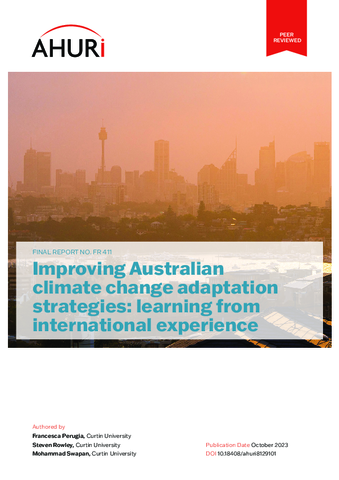This research explores climate change adaptation practices, strategies and policies implemented internationally that could be adopted to support the sustainable development of cities and towns across Australia. Adaptation strategies focus on reducing the impact of climate change effects while promoting sustainable development.
Adaptation is framed as a shared responsibility between governments at all levels, businesses, communities and individuals. Within this overarching framework, each level of government has a specific role.
Australia lacks a strong overarching direction in climate change adaptation, including legislation and funding. In a 2019 assessment of adaptation plans for 54 countries, Australia was the lowest performer. This poor performance can be linked to the narrow scope of Australia's approach to adaptation, including the lack of political leadership and the division of powers and allocation of responsibilities in the three tiers of government.
The research interrogated urban adaptation strategies in three international case studies and found all three case studies emphasise active community participation and leadership in devising and delivering their adaptation strategies.
The research found that Australian cities and towns should incorporate three main strategic approaches for effective climate change adaptation:
- long-term investment and holistic approaches
- building community resilience to deal with the impacts of climate change
- innovation in structural solutions that respect and reinforce the local ecological system as a way to build resilience.


